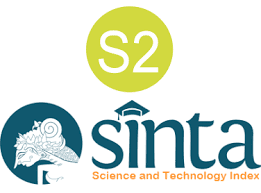Decentralization in Indonesia: An Evaluation of the Implementation of Laws 22 and 25 of 1999
Abstract
Indonesia has been undergoing a reform process. It started with the process of rapid decentralization government began in 1999 from a strong centralized system. One of its process is the introduction of decentralization, a process of transfer power from the central government to provinces to sub-provinces. Decentralization became a worldwide phenomenon since over three decade. Countries around the world use decentralization principles with varying degree, mostly by transferring responsibilities of public service delivery to lower levels of government. The decentralization literature promotes the good governance aspects associated with decentralization including local citizen participation, democratic elections and financial and political equity. Decentralization in Indonesia is much more of an administrative decentralization rather than a fiscal decentralization. The central government continues to control a vast share of the revenues required for local governance under true decentralization.
Key words: Decentralization, Reform Process, Centralized System, Governance
Full Text:
PDFReferences
A. Bayhaqi, Decentralization in Indonesia: the Possible Impact on Education (Schooling) and Human Resource Development for Local Regions, Southeast Asian Studies Programme National University of Singapore, 2004, p. 3. Paper presented at The 2nd International Conference on Indonesia: Decentralization and Structural Reformation, Faculty of Social and Political Sciences, Diponegoro University, Semarang, July 7-8th,2004. http://www.rand.org/content/dam/rand/www/external/labor/FLS/IFLS/papers/2004_bayhaqi.pdf, consulted on 12 November 2014.
Amri, PuspaDelima, Dampakekonomidanpolitik UU No. 22 dan 25 tahun 1999 tentangotonomidaerah. The political and economy impacts of Law No. 22 and 25 /1999 concerning regional autonomy. CSIS working paper 054, June 2000.
B. Hofman and K. Kaiser, The Making of the Big Bang and Its Aftermath: A Political Economy Perspective, Paper presented in the Conference : Can Decentralization Help Rebuild Indonesia?, A Conference Sponsored by the International Study Program, Andrew Young School of Policy Studies, Georgia State University, May 1-3, 2002, p. 2, http://www1.worldbank.org/publicsector/LearningProgram/Decentralization/Hofman2.pdf, consulted on 13 November 2014.
Gabe Ferazzi, (2002): Obligatory Functions and Minimum Standards: A Preliminary Review of the Indonesian approach GTZ SfDM, Report No/2002-2, March. Quoted in B. Hofman and K. Kaiser, The Making of the Big Bang and Its Aftermath: A Political Economy Perspective, Paper presented in the Conference : Can Decentralization Help Rebuild Indonesia?, A Conference Sponsored by the International Study Program, Andrew Young School of Policy Studies, Georgia State University, May 1-3, 2002, p. 2,http://www1.worldbank.org/publicsector/LearningProgram/Decentralization/Hofman2.pdf, consulted on 13 November 2014.
K. Green, Decentralization and Good Governance: the case of Indonesia, Munich Personal rePEcArchieve, MPRA Paper no. 18097, 26 October 2009, p. 1.
M. Turner, Implementing Laws 22 and 25: the Challenge of Decentralization in Indonesia, Asian Review of Public Administration, vol. XIII, no. 1, 2001, pp. 72-73.
P. Smoke and B. D. Lewis, Fiscal Decentralization in Indonesia: A New Approach to an Old Idea, World Development, vol. 24, no. 8, p. 1282.
R. R. Simatupang, Evaluation of Decentralization Outcomes in Indonesia: Analysis of Health and Education Sectors, A Dissertation Submitted in Partial Fulfillment of the Requirements for the Degree of Doctor of Philosophy in the Andrew Young School of Policy Studies of Georgia State University, 2009, p. 1.
R. E. D. Darmawan, The Practices of Decentralization in Indonesia and Its Implication on Local Competitiveness, Public Administration-Public Governance Study, School of Management and Government, University of Twente, Enschede, The Netherlands, 2008, p. ii.
R. R. Simatupang, Evaluation of Decentralization Outcomes in Indonesia: Analysis of Health and Education Sectors, A Dissertation Submitted in Partial Fulfillment of the Requirements for the Degree of Doctor of Philosophy in the Andrew Young School of Policy Studies of Georgia State University, 2009, p. 1.
T. B. Pepinsky and M.M. Wihardja, Decentralization and Economic Performance in Indonesia, 10 December 2010,http://www.researchgate.net/publication/228427343_Decentralization_and_economic_performance_in_Indonesia/links/004635242ae33e3ca4000000, consulted on 12 November 2014.
Refbacks
- There are currently no refbacks.










